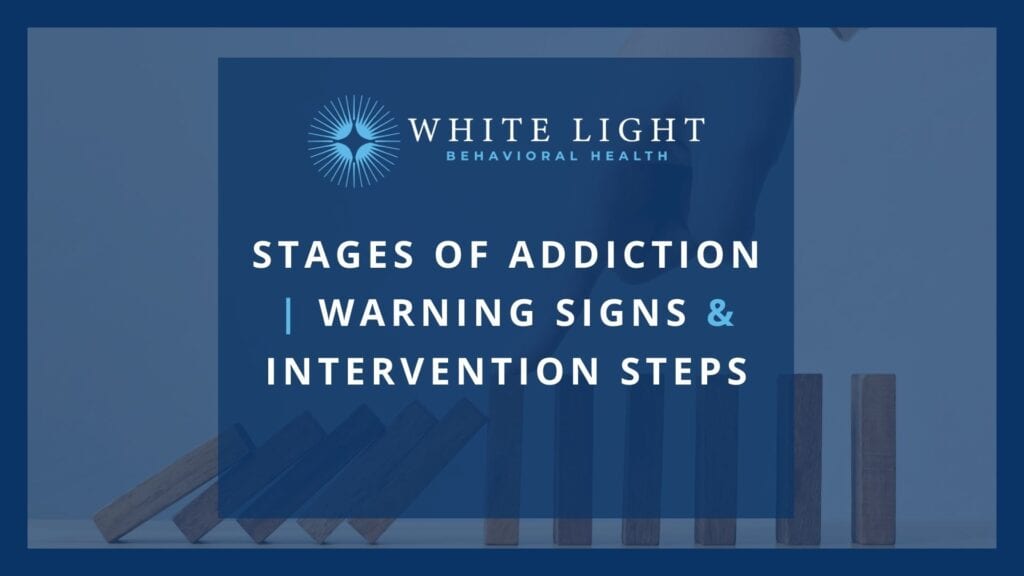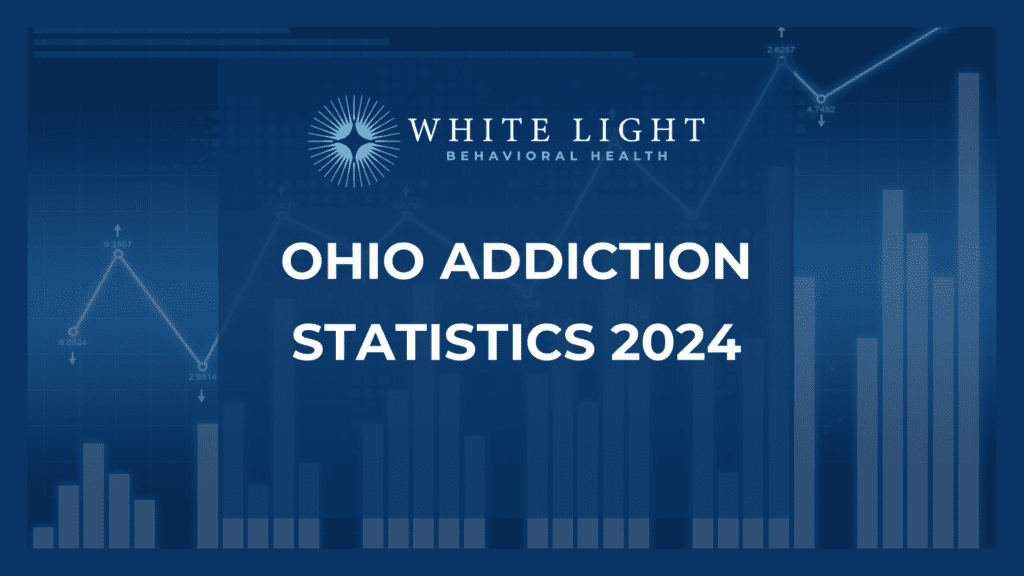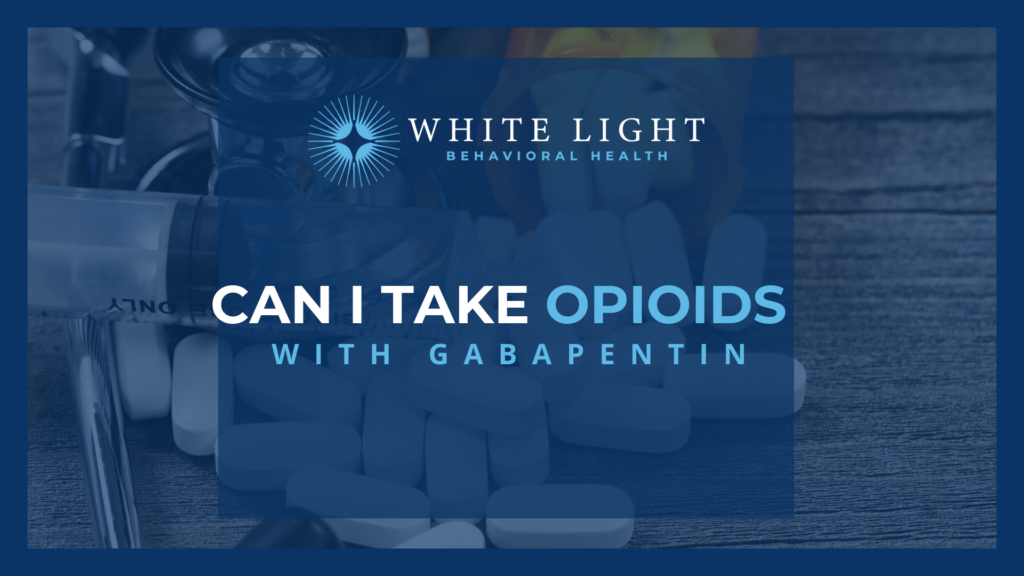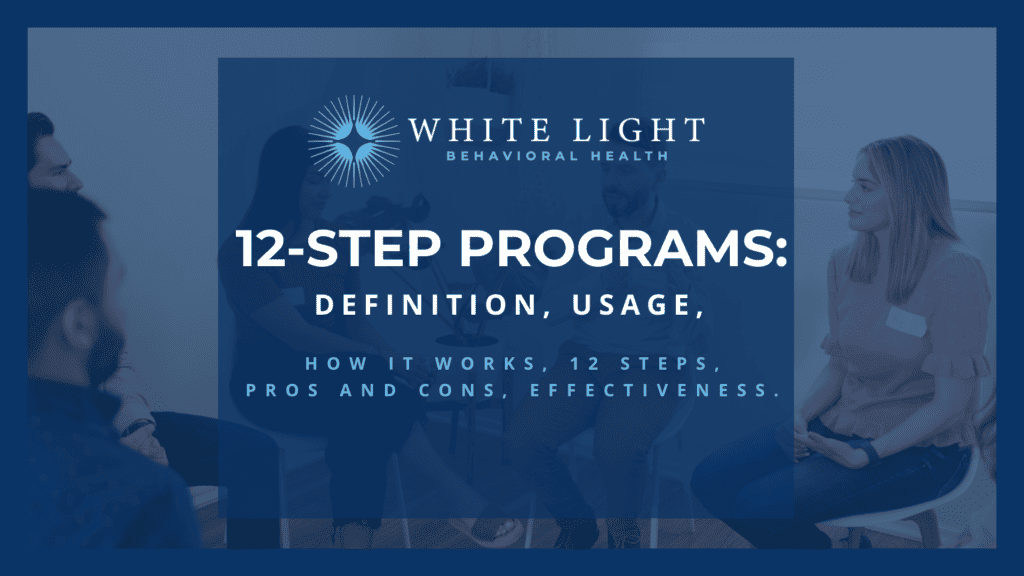Addiction: Stages, Warning Signs, and Next Steps
A study by the National Institute of Mental Health shows that Substance use disorder (SUD) is becoming one of the most common mental illnesses in the United States. SUDs result from a process of repeated drug or alcohol use that progressively impacts how a person’s body and mind react to it. Most people struggling with this mental illness follow a similar pattern, making it possible to break it down into various stages. Understanding SUD’s phases and warning signs is vital in seeking treatment or helping another person get the help they need.
Stages of Substance Addiction
Understanding the six stages of drug and alcohol addiction can help you decide whether or not you need treatment for your drug use. Understanding the stages can also be useful for people concerned about a loved one’s substance use.
1. Initiation
Substance use addiction begins with a person voluntarily trying a substance for the first time. According to the World Drug Report by the National Institute on Drug Abuse published in 2018, the majority of people try a drug of choice before the age of 18. The reasons include peer pressure, which pushes young people to try to fit better into a specific peer group. Some people might try it out of curiosity, just to see how it makes them feel.
Drug availability, mental health, and the family environment contribute significantly to drug and alcohol abuse. The most common challenge is when the drugs are introduced legally. When people continue taking the drug, the body becomes accustomed to it, sometimes prompting them to take it more than recommended. It rapidly develops into the next stage.
2. Experimentation
At this stage, a user moves past trying the drug and takes it in different contexts to test how it feels. An adolescent may try a drug at a party because of social pressure and the perception that it will make the experience more enjoyable. At this stage, however, a person doesn’t have cravings and can make a well-informed choice on whether to use it or not. It may not be hard to stop using the drug at this stage as the effects are minimal. An intervention by a caregiver may work at this stage because the user has not become dependent on the drug.
3. Regular Use
As a person continues experimenting with a drug, use becomes normalized and moves from occasional to regular use. It does not mean that the drug is used daily, but a pattern is starting to develop. At this point, the drug starts causing harm to the user, and they begin to rely on it. A regular user’s behavior begins to jeopardize their safety and that of those around them. Quitting becomes more challenging, but with a bit of help, a person can stop.
4. Risky Use
At this stage, regular use continues to increase and negatively impacts the person’s life. Although a person may not notice it, people on the outside will notice a significant shift in an individual’s behavior. The most common changes to look out for at this stage include neglecting current responsibilities and losing interest in activities they were interested in. Risky use is also characterized by hiding drug use and changing medical practitioners from time to time if the issue is prescription drugs. The person’s relationships with other people may also begin to deteriorate.
5. Dependence
The marking point of the stage is that a person no longer uses the drug for medicinal or relaxation purposes but due to reliance. The individual has already become tolerant of the drug and must use more to get the same effects, which impacts them physically and psychologically. Physically, they have used a specific drug for a long time, and their body has learned to rely on it. When a person abruptly stops the intake, the body reacts with withdrawal symptoms, generally characterized by uncomfortable symptoms according to the National Library of Medicine published in 2009. People may continue to use a substance to avoid withdrawal symptoms.
An individual may also continue taking the drug because of psychological dependence as they believe it helps them function normally. The drug, therefore, becomes a coping mechanism for hard times and is commonly taken in response to stressful situations. The craving for the substance becomes intense, and they may come to believe that they need the drug to live. A loved one will most likely resist friends’ and family’s efforts to help.
6. Addiction
One of the addiction stage’s most significant points is that one may use the drug without making a conscious decision. The brain becomes severely reliant on the substance, and addicts feel they cannot deal with life anymore without access to the select drug. It leads to losing control over a person’s choices and actions. At this point, a person may no longer recognize how detrimental their behavior is and its effects on their relationships. An intervention is likely necessary at this stage.
Warning Signs of Addiction
Addiction is associated with symptoms that necessitate intervention. They include:
Physical Signs
Most signs in the category are readily visible, while others stay hidden and occur as progressive changes. As per Paula Spencer Scott’s study published in 2023, Physical signs include:
- Having bloodshot eyes, which is evident in many users. The pupils may also appear constricted.
- A person may experience rapid weight loss due to a loss of appetite.
- There may be an interruption in sleeping habits. A person may experience insomnia or hypersomnia depending on the type of drug according to Michael R. Dolsen’s study published in the National Library of Medicine in 2018.
- An individual may experience constant changes in complexion. Most users get acne, paleness, and scars on their skin.
- A person may have poor personal hygiene.
Behavioral Signs of Addiction
There are also behavioral signs of addiction. Addicts are likely to isolate themselves from friends and family when they develop a substance use disorder. In most cases, they will experience shame and fear of the social stigma associated with drug use. For example, they may spend more time alone in their room and shut down when people talk to them.
Addicts may also be defensive when uncomfortable drug-related topics arise and respond with hostility. They may also try to hide their drug use by redirecting the conversations with arguments.
Addicts may display erratic behavior. Depending on the drug, the behavior is mainly associated with paranoia, a sense of power, and invulnerability. Withdrawal symptoms may also cause addicts to engage in reckless and criminal activities to gain the funds to maintain their habit.
Financial distress is associated with addiction as well. The habit gets too expensive, which may require an addict to keep borrowing money. An addict may also sell their property to acquire funds to buy drugs.
Finally, a person may experience challenges at school or work. An addict may frequently miss school or work or lose interest, resulting in a sharp drop in performance.
Psychological Signs of Addiction
A study by Prof. Elizabeth Hartney updated in 2024 shows that, the Psychological signs of addiction include changes in an addict’s principles and priorities. Substance use can alter how a person thinks about the world and their general attitude toward other people.
Those with substance use disorder may have unexplained mood swings and become easily irritated by the people around them. They may also display misery and be upset in situations they previously handled calmly.
Addicts may experience a loss of interest in completing everyday tasks, such as attending to household chores. Frequent failure to follow through on priorities and lack of enthusiasm indicate an underlying problem.
Addiction can often lead to low self-esteem. Addicts may demonstrate an increased lack of confidence in all aspects of life, or they may struggle with depression and anxiety. Addicts may act depressed or anxious much more than they used to.
Interventions
It may be time for intervention if you’re sick of seeing a loved one’s life destroyed by addiction. There is no hard and fast rule on how to go about organizing an intervention, but you should undoubtedly be well-prepared. An intervention is a meeting where friends and family discuss with their loved one about their substance misuse and ask them to accept treatment.
What Happens at a Rehab Center
Detoxification
Detoxification usually is the first step in treatment. In detoxification, you are stabilized under a medical detox program. It helps in overcoming withdrawal symptoms. The program lasts a few days to weeks. A detox may involve medication to help in early recovery by reducing withdrawal symptoms and minimizing cravings. Professionals monitor dangerous withdrawal complications.
As stated in the National Library of Medicine in 2009, Withdrawal management treatment is vital for those with a history of addiction to substances, as stopping usage may lead to hazardous health effects. It is vital to administer the treatment under professional supervision to reduce the risks.
Once you are cleared from detox, the rest of the rehabilitation process begins. Below are several common types of therapy utilized by rehab centers.
Cognitive Behavioral Therapy (CBT)
Cognitive behavioral therapy (CBT) motivates you to reflect on recurring thoughts to recognize negative and unhealthy behaviors. This therapy helps you recognize and change ways of thinking associated with substance use. It also equips you with coping skills to identify risky situations and act on them while preventing relapse. You learn skills that will benefit you beyond the initial therapy and can be used to cure recurring mental and physical disorders. CBT is effective for clients addicted to different types of drugs. It is also flexible and may work with other techniques to treat SUD.
Contingency Planning
According to a study by Nancy M. Petryc published in 2011, Contingency planning (CM) aims to ensure abstinence from substance use. It is based on your goals and focuses on helping you to make positive behavioral changes. You are offered rewards such as vouchers as a motivation to adopt healthy behaviors. CM is mainly used with other interventions depending on your needs and the situation.
Motivational Enhancement Therapy and Motivational Interviewing
Motivational interviewing helps you discover how substance use does not align with your goals and principles. The understanding gained by this type of therapy helps you change behaviors with minimal resistance. Motivational enhancement therapy applies a structured approach to motivate you to participate in therapy sessions rapidly. It is most effective for boosting the treatment of alcohol and marijuana addiction.
Matrix Model
Hossein Eghbali, in his 2013 study, noted that The Matrix Model is an intensive approach to addiction intervention that uses different techniques to treat a client. It focuses on your feelings, behavior, and relationships around you. It emphasizes a good counselor-client relationship while motivating you to create the framework in your life. It is vital as it helps you manage your daily free time and schedule with positive results.
This model was first used for clients struggling with cocaine use but has been proven effective for clients addicted to other substances. The model involves treatments for relapse prevention after discontinuation of use and family therapy. You learn coping skills that help in overcoming addiction. Mandatory drug testing is part of the program, and you are put in touch with support groups like Narcotics Anonymous to help you get better.
The Road to Recovery
Rehab can be thought of as the foundation under the road to recovery. After rehab, you should be able to address problems in your life as they happen without using drugs or alcohol. You should also have healthy personal boundaries and realize that other people’s problems are not your own. Finally, you will have gained self-care skills and learned how to make your well-being the center of your life.
Seeking Help
At White Light Behavioral Health, located in Columbus, OH we have an experienced team dedicated to people who struggle with addiction, no matter what substance or substances they have been using. Our withdrawal management professionals will work with you to make sure the detox stage of your rehabilitation process is as comfortable as possible and safe. Afterward, our team will help you build a solid foundation for your road to recovery. Contact us today to learn more about how we can help you take the first steps to a healthier and more meaningful life.
How does addiction impact physical health?
Addiction can have significant effects on physical health, often manifesting in various ways depending on the substance or behavior involved. Substance abuse, for instance, can lead to organ damage, cardiovascular issues, compromised immune function, and increased risk of infectious diseases. Additionally, behaviors associated with addiction, such as poor nutrition, lack of sleep, and neglect of personal hygiene, can further exacerbate these health problems.
What are the common signs of addiction in loved ones?
Recognizing the signs of addiction in loved ones is crucial for early intervention and support. Common indicators include changes in behavior or mood, secretive or dishonest behavior, neglect of responsibilities, financial problems, and physical changes such as weight loss or deterioration in personal hygiene. It’s important to approach these signs with empathy and understanding, as addiction is a complex issue that requires support and intervention.
Can addiction be genetic?
Yes, there is evidence to suggest that addiction can have a genetic component. Individuals with a family history of addiction may be at a higher risk of developing substance abuse issues themselves. However, genetics alone do not determine one’s susceptibility to addiction; environmental factors, psychological factors, and personal choices also play significant roles in the development of addictive behaviors.
How does addiction affect relationships?
Addiction can strain relationships in various ways, often leading to distrust, communication breakdowns, and emotional distance. Loved ones may experience feelings of betrayal, frustration, and helplessness as they witness the destructive behavior of the addicted individual. Furthermore, addiction can disrupt family dynamics, leading to conflict, financial stress, and instability within the household.
What are the long-term consequences of untreated addiction?
Untreated addiction can have severe long-term consequences, affecting various aspects of an individual’s life. These may include deteriorating physical health, worsening mental health conditions, financial ruin, legal problems, damaged relationships, and social isolation. Without intervention and support, addiction can progressively worsen, leading to a diminished quality of life and increased risk of overdose or other serious complications.
How can families cope with a loved one’s addiction?
Coping with a loved one’s addiction can be challenging, but there are strategies and resources available to support families through this difficult time. These may include setting boundaries, seeking professional help, attending support groups such as Al-Anon or Nar-Anon, practicing self-care, and fostering open communication within the family. Families need to prioritize their well-being while providing encouragement and support for their loved one’s journey towards recovery.
How does addiction affect the brain?
Addiction can impact the brain, altering its structure and function in ways that perpetuate compulsive substance use or behavior. Drugs and alcohol hijack the brain’s reward system, leading to cravings and dependence. Over time, these substances can also impair cognitive function, decision-making abilities, and impulse control. Understanding the neurological mechanisms of addiction is crucial for developing effective prevention and treatment strategies.
Can addiction be cured?
While addiction cannot be “cured” in the traditional sense, it can be effectively managed through treatment and ongoing support. Recovery from addiction is a lifelong process that often involves a combination of therapies, support groups, medication, lifestyle changes, and ongoing self-care. With dedication and commitment, individuals can achieve long-term sobriety and lead fulfilling lives free from the grip of addiction.
How does addiction impact employment?
Addiction can have significant consequences for employment, affecting an individual’s ability to maintain steady work and fulfill job responsibilities. Substance abuse can lead to absenteeism, tardiness, impaired performance, and conflicts with coworkers or supervisors. Moreover, legal issues stemming from addiction, such as arrests or convictions, can further jeopardize employment prospects. Seeking treatment and support can help individuals regain stability in their professional lives and work towards sustainable recovery.
How can addiction affect children in the family?
Children growing up in families affected by addiction may experience various emotional, psychological, and social challenges. They may feel neglected, anxious, or ashamed due to their parent’s or caregiver’s substance abuse. Additionally, they may be at a higher risk of developing behavioral issues, academic problems, and substance abuse disorders themselves later in life. Families need to seek support and create a nurturing environment for children affected by addiction.

Share This Post



